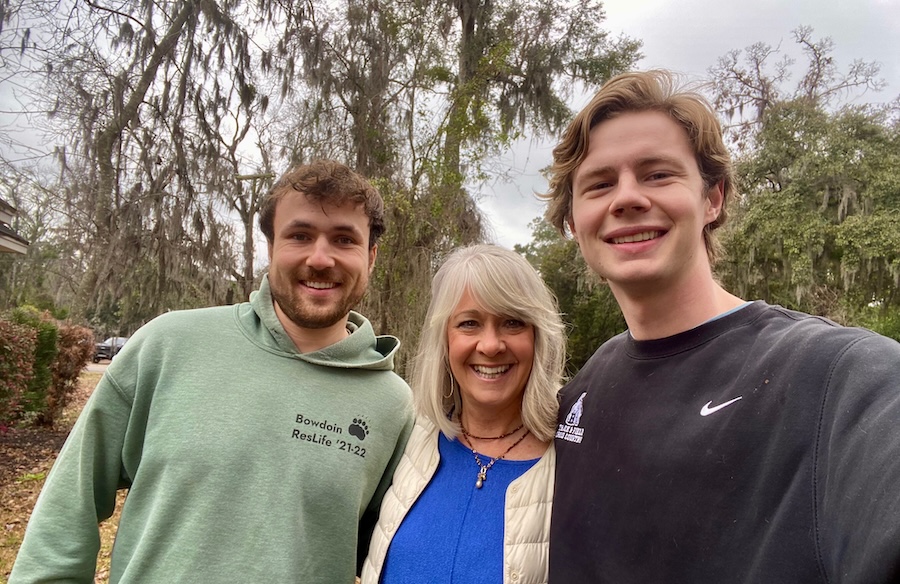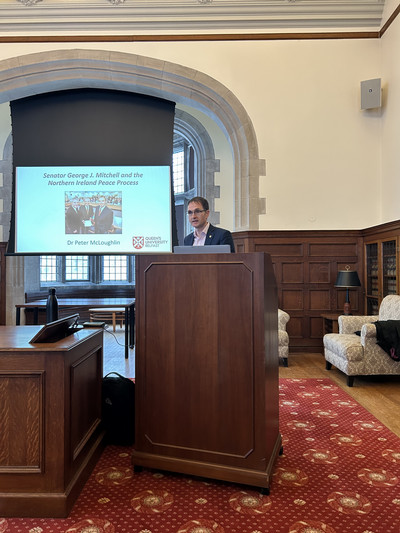Bowdoin's 2016 Honorary Degree Recipients
By BowdoinThe Honorands: An Introduction to Bowdoin's Honorary Degree Recipients from Bowdoin College on Vimeo.
Honorary degrees will be presented to artist Dorothea Rockburne, Olympic gold medalist Frank Shorter, former Bowdoin College Board of Trustees Chair Peter Small ’64, P’97, P’99 and Ford Foundation President Darren Walker.
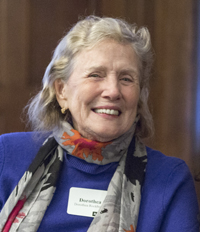
Dorothea Rockburne is a painter, mixed media, and installation artist who brings to her art a deep understanding of mathematics and astronomy. Born in Montréal, Quebec, in 1932, she received classical training in art at the École des Beaux-Arts, Montreal, in 1942 and then at the Montréal Museum School. She studied in the avant-garde art program at Black Mountain College in Asheville, NC, from 1950-55, studying painting, music, dance, mathematics, theater, linguistics, philosophy, literature, writing, poetry, and photography. This broad range of subjects and her own experiences has informed her approach to her art. Following a position cataloguing Egyptian antiquities at the Metropolitan Museum of Art in New York, she created Egyptian Paintings (1979-80). In 1970 Rockburne produced her “Set Theory” installations, which were inspired by the relationships between mathematics and the way a body moves through space.
In the early 1990s, Rockburne began to study astronomy and frescoes, combining these interests to create a major fresco secco for SONY headquarters in New York City entitled Northern Sky, Southern Sky (1992–1993). In 2001, Rockburne participated in the comprehensive exhibition The Universe: Contemporary Art and the Cosmos. In March of 2015 she delivered a lecture at the College to accompany an exhibit of her mathematically-inspired paintings. She has received many awards and honors during her successful career, including the National Endowment for the Arts grant (1974), the Witowsky Prize for Painting (1976), participation at the 1980 Venice Biennale, and a membership in the Department of Art at the American Academy of Arts and Letters (2001). She is the recipient of Lifetime Achievement awards from the American Academy of Arts and Letters (1999) and the National Academy Museum and School of Fine Arts (2009). Ms. Rockburne is a member of the American Academy of Arts and Letters, the National Academy of Design, and the Century Association.
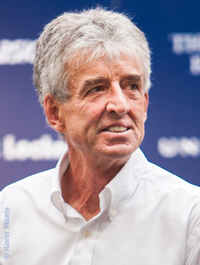
Frank Shorter is a former American long-distance runner who won the gold medal in the marathon at the 1972 Summer Olympics. His victory is credited with igniting the running boom in the United States of the 1970s, and he remains one of the most influential figures in the sport, through his role in the anti-doping movement in international athletics. Born on October 31, 1947, in Munich, Germany, he grew up in Middletown, New York. After earning his high school diploma from the Northfield Mount Hermon School in Gill, Massachusetts in 1965, Shorter then graduated from Yale University in New Haven, Connecticut with a bachelor of arts degree (B.A.) in 1969, and the University of Florida College of Law in Gainesville, Florida with a juris doctor degree (J.D.) in 1974.
An extraordinary distance runner, Shorter won the U.S. national cross-country championships four times (1970, 1971, 1972, and 1973), the 10,000-meter and marathon at the Pan American Games in 1971, and the Fukuoka marathon four times (1971, 1972, 1973, and 1974). He joined the members of the U.S. Olympic Track and Field team in July of 1972 to train at Bowdoin’s new all-weather track that had been installed at Whittier Field a year earlier. He was the U.S. Olympic Trials Champion in both the 10,000-meter run and the marathon in both 1972 and 1976, and captured the gold medal in the Marathon at the 1972 Summer Olympic Games in Munich and the silver medal in Montreal. He was successful on the road race circuit as well, winning the Peachtree Road Race in 1977 and the Falmouth Road Race in 1975 and 1976. Mr. Shorter is an author, a successful lawyer, a television commentator, was the first head of the U.S. Anti-Doping Agency, and has been an advocate for children who have been victims of physical abuse (he and his siblings were beaten by his father).
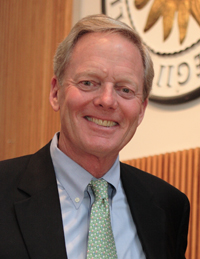
Peter M. Small ’64, P’97, P’99 has an extraordinary record of service to Bowdoin College, and has led the College through nearly 30 years as a member of the Board of Overseers and the Board of Trustees, serving as Chair of the Board of Trustees from 2005-2010. Born in Glenridge, New Jersey, in 1942, Peter served in the U.S. Coast Guard after his graduation in 1964. He entered the field of real estate, and established himself as a leader at the national real estate development firm of Spaulding & Slye Company, where he served as president, chairman, and CEO. He served on the governing boards of the College under three presidents, was elected an Overseer in 1988 and a Trustee in 1996 when Bowdoin went to a unicameral system of governance.
Peter’s service on Trustee Committees track important changes in the life of the College under three presidents, from the implementation of investment strategies to the construction and renovation of facilities, from the creation of a new residential life program to expansion of the student body and faculty; and from growth in annual giving programs to the completion of successful capital campaigns. He was a member of the 2014-15 Presidential Search Committee. He established the Peter Metcalf Small Scholarship Fund at Bowdoin in 1986 and the Peter M. Small Professorship in 2007. A member of a five-generation Bowdoin family, Peter’s son, Benjamin, is a member of the Class of 1997, and his daughter, Elizabeth, is a member of the Class of 1999.
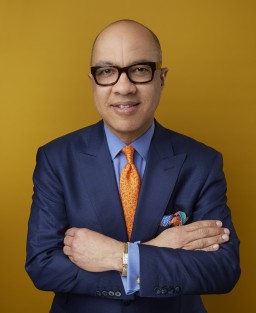
Darren Walker followed a remarkable career trajectory and personal journey to become the president of the Ford Foundation. Born in 1960 in Lafayette, Louisiana, and raised by a single mother in southeast Texas, he was one of the first children in the country to benefit from the Head Start program. He graduated from the University of Texas in 1982 with a B.A. in Government and a B.S. in Speech Communication. He earned a J.D. from the University of Texas School of Law in 1986 and began working at the international law firm Cleary, Gottlieb, Steen & Hamilton. In 1988, he joined Union Bank of Switzerland (UBS) and spent seven years in its capital markets division. In 1995 he left the corporate world and volunteered for a year in a school in Harlem. He went on to become CEO at Abyssinian Development Corporation, a Harlem-based community organization, which created the first public school in New York City built by a community organization.
From 2002-2010, Walker was vice president for foundation initiatives at the Rockefeller Foundation; in the wake of Hurricane Katrina he led a recovery program for the Foundation. He joined the Ford Foundation in 2010 as vice president for Education, Creativity and Free Expression, one of the foundation’s three major program areas, and managed the Foundation’s regional programming in four offices in Africa and the Middle East. Walker was named president at the Ford Foundation in 2013. The Foundation has identified inequality as the most pressing issue to which their philanthropic efforts and resources should be directed in the near future. He is a fellow of the Institute of Urban Design, a member of the Council on Foreign Relations, and serves on many boards, including the Arcus Foundation, Rockefeller Philanthropy Advisors, and the New York City Ballet.
